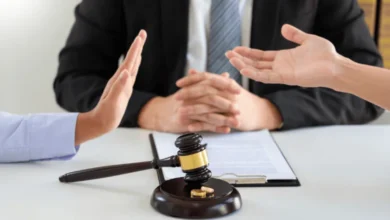How to Prepare for a Business Litigation Case With Your Lawyer

Regardless of the type of business dispute you face, there are essential steps and critical mistakes to avoid. This is where a business litigation attorney can be of assistance.
A business litigation lawyer represents the interests of businesses in legal matters that may involve a breach of contract, a shareholder or partnership dispute, and many other commercial issues. A knowledgeable and experienced business litigator can make all the difference in winning or losing your case.
Gather Documents
Approximately 45% of small businesses will be involved in a legal dispute. This includes disputes over property, breach of contract, and partnership conflicts.
A business litigation lawyer can help you prepare for your case by evaluating your situation and helping you gather the necessary documents. This includes bank records, contracts, and receipts.
It’s also a good idea to organize any email evidence you have, such as customer service emails that contain important information about your business that you may need to prove during your trial.
The most important thing to remember is to keep your documents organized and accessible for review during the discovery phase of your business litigation case.
The discovery process in business litigation is a crucial step in the litigation process, as it allows both parties to share important information. This allows each side to develop its best strategy for the upcoming trial.
Schedule a Consultation
When you’re ready to begin preparing for your business litigation case, one of the first things to do is to schedule a consultation with your lawyer. This appointment is an excellent opportunity to ask questions about the process, how long it will take, and what to expect at every step.
Be sure to bring copies of any important documents you want to present to the attorney during your initial consultation. You can also get a friend or relative if you’d like, but remember that you might lose your attorney-prospective client confidentiality if they are present.
Aside from discussing your legal issue, this meeting is an excellent time to determine how much your lawyer will charge for the initial consultation and the costs for any other services they may provide. You can get this information from their website or by calling them and asking for a consultation.
Schedule a Deposition
Depositions are a vital part of the litigation process and are often used to gather new evidence to either help you or hurt your opponent’s case. They also can narrow down what issues should be brought to trial.
The first step is to schedule a deposition with your lawyer. They’ll go over the court rules that govern deposits, questions you’re likely to be asked, documents you may be shown and questioned about, and general guidance on how to answer them.
A court reporter will then record the entire deposition and produce a transcript later. This can then support a summary judgment motion or at trial.
Prepare for Trial
Every year, about 45% of small businesses face legal disputes over issues like breach of contract, business partners, and property ownership. This type of litigation is commercial litigation, which can be stressful for any business.
Keeping documentation prepared throughout the legal process can help you make a strong case at trial. Documents should include contracts, invoices, memoranda, emails, and other written material.
You may also want to keep copies of communication with the other party. While these aren’t typically considered evidence, they can provide additional details that might come up at trial.






